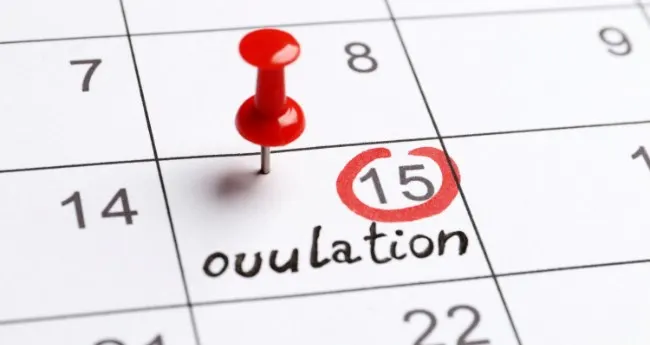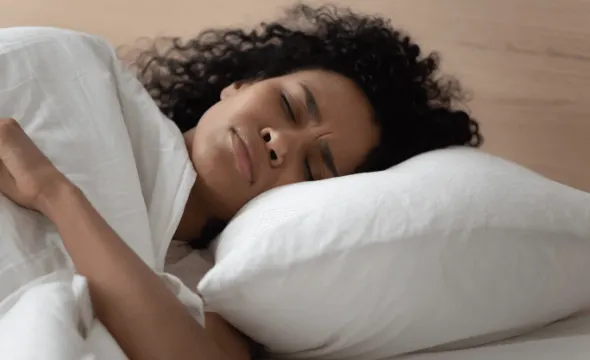Constipation During Ovulation: Causes, Symptoms & How to Relieve It

Premenstrual symptoms range from bloating to mood swings. These symptoms often get the attention they deserve. However, when it comes to ovulation, certain symptoms do not get enough attention and also overlap. Although constipation during ovulation is not discussed much, it can be incredibly uncomfortable.
It is better to equip yourself with the knowledge so that you are prepared to deal with constipation when ovulating. Continue reading to learn more about the subject and have your questions answered.
Link Between Ovulation and Constipation

When a person experiences fewer than three bowel movements a week, it is known to be a sign of constipation. However, it is important to note that each person’s bowel movement patterns are unique. On one hand, some people have a bowel movement several times a day, while others only twice a week. It is different for everyone. Many women experience ovulation constipation. If you have the same problem, you are not alone.
If you notice that there has been a change in your normal bowel movement schedule, which occurs at around the same time every cycle, then you might ask yourself if this is connected to ovulation. You would be right in wondering as progesterone levels rise in your body after ovulation. Progesterone is responsible for aiding your uterine lining to grow. This helps the egg to implant and pregnancy to take place if it meets a sperm. The progesterone levels can remain high even days after ovulation takes place. The phase between ovulation and period is known as the luteal phase. Constipation tends to occur during the luteal phase of the menstrual cycle because of the increase in progesterone. Many women experience constipation during the luteal phase and it could be owing to the high levels of progesterone. However, more research is required on the subject.
Ways to Alleviate Constipation During Ovulation

It is imperative that you know how to manage constipation during ovulation as it can enhance your overall comfort and wellbeing. Every individual has different cycles. Some cycles you may be constipated, while other cycles you may have diarrhoea. If you are lucky, you may experience neither of them. Plenty of people do not even notice changes in their lavatory pattern during their menstrual cycle. Constipation during ovulation is not necessarily universal, but it is best to be informed to tackle the situation better. There are certain measures you can take to help deal with constipation:
- Increase your fibre intake: You can increase your fibre intake. There are certain foods that are rich in fibre and could protect you from being constipated. Choose whole grain foods such as brown rice or pasta made from whole grain. Make sure your meals include a lot of fresh fruit and vegetables. Additionally, foods like those listed below are rich in fibre:
- Oats
- Peas
- Beans
- Lentils
- Apples
- Apricots
- Grapes
- Raspberries
- Flaxseeds
- Strawberries
Strawberries contain sorbitol, which is a natural laxative. Foods such as dairy, white rice, processed foods and sweets are also best avoided. Foods like papaya and prunes that contain natural laxatives could prove beneficial. Moreover, you can also avoid foods that could cause constipation or over-the-counter medication that do the same.
- Move your body: Movement is essential for a regular bowel movement. So, find a good pair of shoes and go on walks if you have trouble with bowel movements.
Once the luteal phase is over, you will start with menstruation. Stay ahead of your period and stock up on your favourite Always sanitary pads. The Always Ultra Thin Pads are a great option if you are walking or being active in general due to its Ultra Thin Superior Fit, super absorbent core and clean and dry top cover.
How to Take Care of Your Body
Understanding your cycle will ensure you are better prepared. Also, listen to your body and take good care of yourself. If you feel the need to reach out to a healthcare professional, please do not hesitate. You need not feel embarrassed when approaching a doctor so that they can give you the right treatment. Visiting a doctor can help you with cramps and constipation during ovulation.
Navigating your menstrual cycle can be a challenging affair, however, you can quickly correct ovulation constipation if you act swiftly. Be in understanding how hormones impact constipation during ovulation or coping with the discomfort the issue brings; it is best to gather information on the subject from the right source. So, go on ahead and pass this information to a friend or family member who might benefit from it.
Disclaimer:
Please note the date of the last review or update on all articles. No content on this site, regardless of date, should ever be used as a substitute for direct medical advice, diagnosis or treatment from your doctor or other qualified clinician. Always is committed to ensuring that all of our products meet rigorous safety standards; Always pads prioritize safety, protection and comfort of its consumers.










